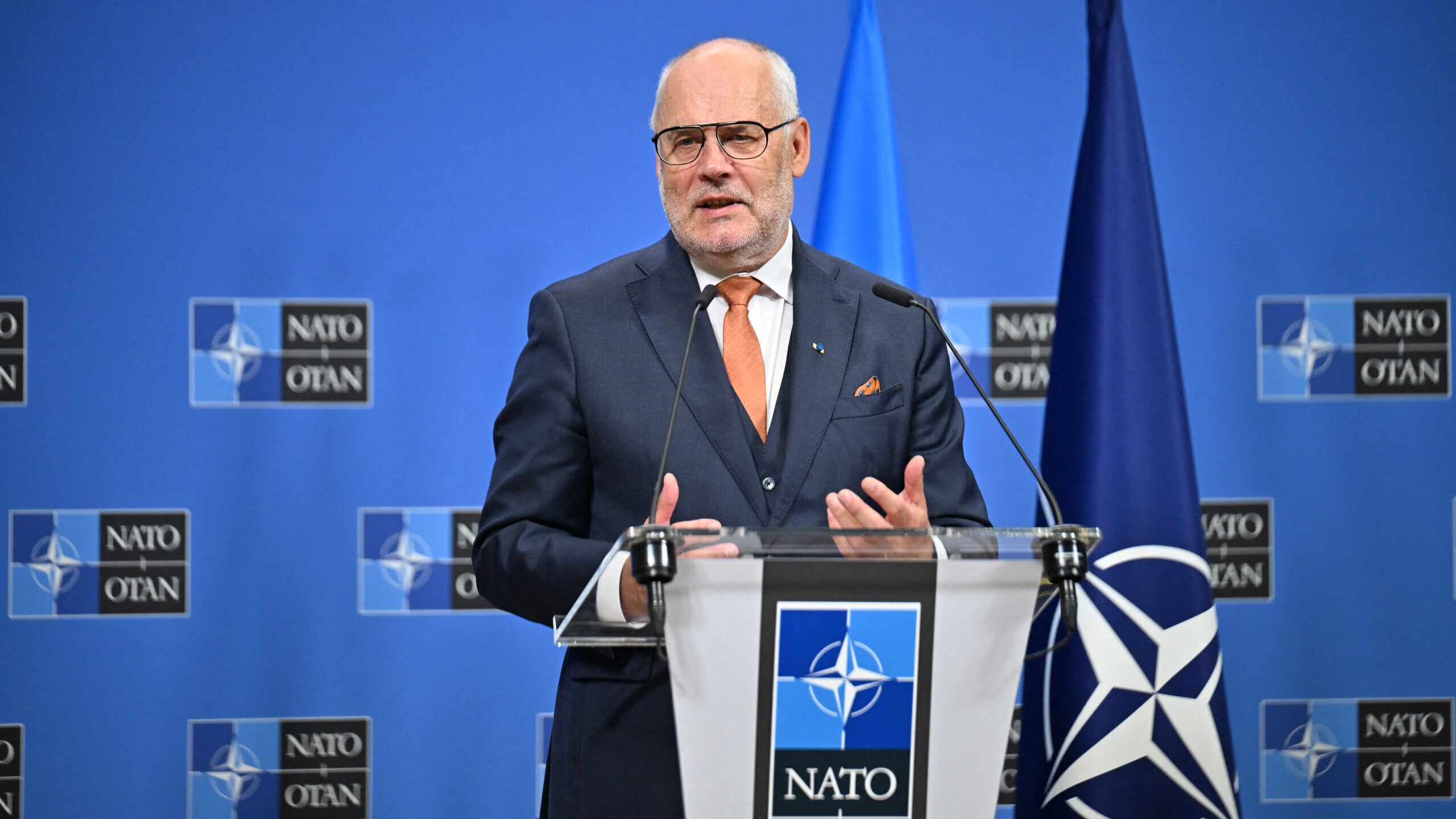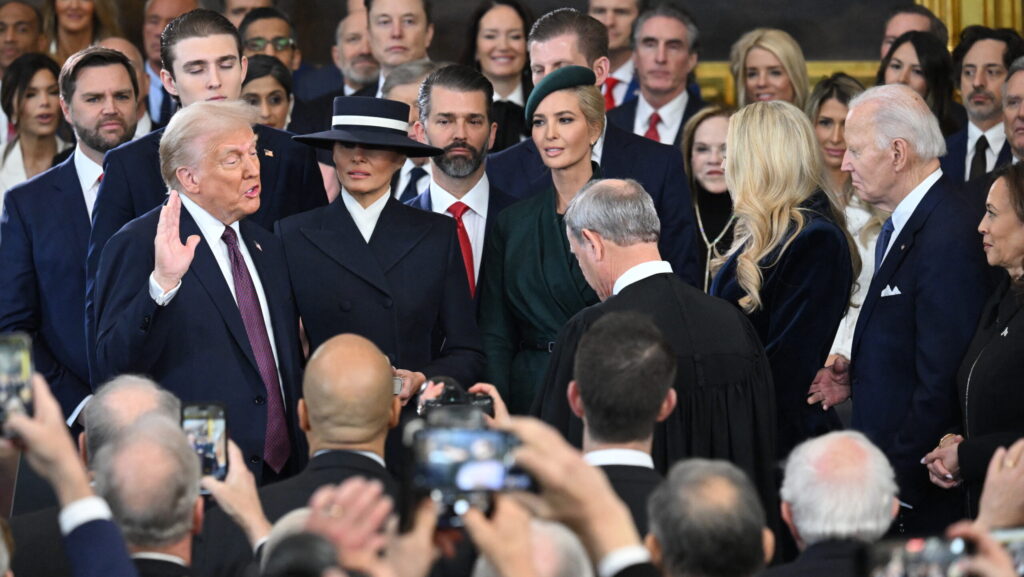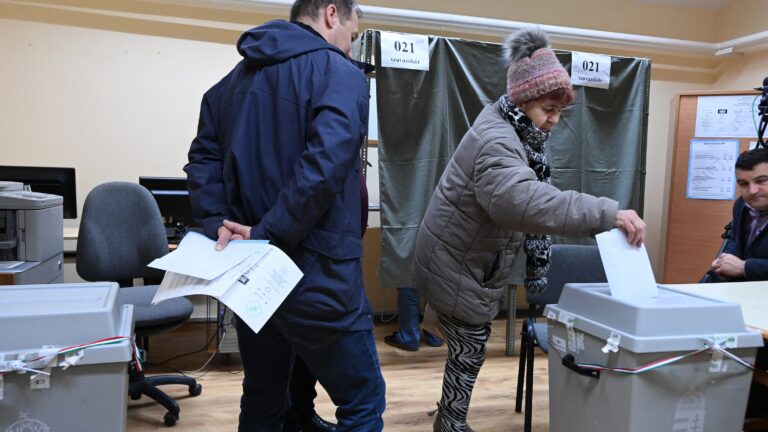Estonian President Alar Karis gave an interview to POLITICO Brussels in which he addressed several issues, including Ukraine’s accession to the European Union—a process currently blocked by Hungary. Karis argued that member states ‘should work on this one country [Hungary],’ suggesting that perhaps they should ‘talk more’ to Hungarian Prime Minister Viktor Orbán to find a solution, rather than simply labelling him pro-Russian.
‘We should work on this one country…Maybe we should talk more to [Hungarian Prime Minister Viktor Orbán], not just label him, to find a solution,’ Karis said, according to POLITICO. He added that the alternative is that ‘Hungary leaves the room and we make a decision,’ referring to the European Council summit of December 2023, when Orbán left the room to allow others to vote in support of launching Kyiv’s EU accession process.
Orbán has long been the sole EU leader blocking Ukraine’s bid—a position he reaffirmed after an emergency European Council summit in March 2025. Following that meeting, the Hungarian prime minister vowed to veto every joint conclusion on Ukraine and the opening of accession clusters, a promise he repeated in July. The Hungarian government even initiated a public vote on the issue in April, which concluded in June. According to official results, 95 per cent of respondents opposed Ukraine’s EU membership.
Balázs Orbán, political director to the Hungarian prime minister, recently noted that new Eurobarometer data shows deep divisions among European citizens as well. ‘Nearly 184 million citizens—41 per cent of EU residents—oppose Ukraine’s membership,’ he wrote. According to the data, 64 per cent of Hungarian respondents rejected Kyiv’s accession.
Balázs Orbán on X (formerly Twitter): “1/7 ⚠️ Brussels speaks of fast-tracking Ukraine’s EU accession. But what do Europeans say❓️ The latest @EurobarometerEU makes it clear: there is no consensus. Nearly 1️⃣8️⃣4️⃣ million citizens – 4️⃣1️⃣% of EU residents – oppose Ukraine’s membership. In 🇭🇺 Hungary, 9️⃣5️⃣% said “no” in… pic.twitter.com/aJrEO5bOAe / X”
1/7 ⚠️ Brussels speaks of fast-tracking Ukraine’s EU accession. But what do Europeans say❓️ The latest @EurobarometerEU makes it clear: there is no consensus. Nearly 1️⃣8️⃣4️⃣ million citizens – 4️⃣1️⃣% of EU residents – oppose Ukraine’s membership. In 🇭🇺 Hungary, 9️⃣5️⃣% said “no” in… pic.twitter.com/aJrEO5bOAe
Budapest opposes Ukraine’s EU bid for several reasons, with one of the central arguments being that integrating a country at war into the Union would automatically make all member states a party to the conflict. For now, there is no genuine debate inside the EU on the pros and cons of Ukraine’s accession: the other 26 member states sideline Hungary in joint conclusions and policy decisions, while simultaneously seeking ways to strip Budapest of its veto rights in order to move forward.
Karis’s remarks may represent a significant shift towards a more dialogue- and compromise-based approach—if echoed by other leaders. It is also worth noting that political dynamics in several member states, including Poland, Czechia, and other Central and Eastern European countries, are increasingly moving towards opposition to Ukraine’s membership.
During the interview, Karis also raised concerns about a potential withdrawal of US troops from NATO’s eastern flank, including the Baltic states. He said he had lobbied US President Donald Trump on the importance of maintaining a US military presence in Eastern Europe when the two sat together for two hours at the April funeral of Pope Francis. ‘I explained everything,’ the Estonian leader recalled. ‘The presence of US troops in Estonia—not only in Estonia, in Europe—is crucial, and it is important for the United States, not just Europe.’
Karis further suggested that Trump may already be ‘losing temper’ over peace talks with Russian President Vladimir Putin, due to the latter’s reluctance to continue the process.
Related articles:







